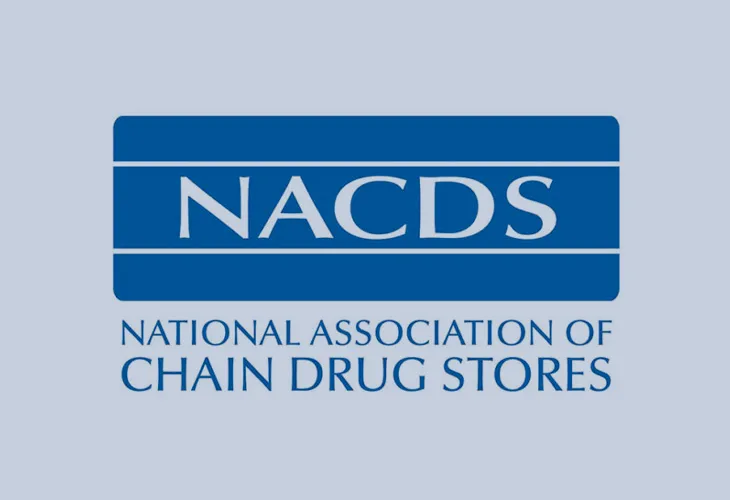ARLINGTON, Va. — National Association of Chain Drug Stores president and CEO Steven Anderson issued the following statement after the Federal Trade Commission’s (FTC) release today of an interim staff report on the harmful tactics of pharmacy benefit managers (PBM) – the pharmaceutical middlemen:
“The FTC’s initial findings in its study of PBM tactics provide further evidence of the dire need for action at the federal and state levels. According to the FTC, ‘the report finds that PBMs wield enormous power over patients’ ability to access and afford their prescription drugs, allowing PBMs to significantly influence what drugs are available and at what price.’ The FTC also describes PBM tactics as ‘imposing unfair, arbitrary, and harmful contractual terms’ on pharmacies’ with devastating effects on pharmacies and on communities.
“NACDS emphasizes that these harms are experienced brutally by pharmacies of diverse sizes and formats, including independents and chains, that do not receive preferential treatment from their vertically integrated plans and PBMs. In fact, the interim report released today discusses extensively the effects of ‘self-preferencing’ and ‘unfair contract terms’ – whereby ‘vertically integrated PBMs appear to have the ability and incentive to prefer their own affiliated businesses, creating conflicts of interest that can disadvantage unaffiliated pharmacies and increase prescription drug costs.’ Make no mistake, smaller and larger pharmacies unaffiliated with plans and PBMs are harmed – and these harmed pharmacies include unaffiliated chains.
“This report is yet another example of the momentum for reform that has reached critical mass among government leaders across political ideologies, healthcare providers, patients, employers, and the media. The Congress and states need no further validation for their bipartisan work to immediately confront pharmaceutical benefit manipulation that is devastating Americans, communities, and pharmacies of all sizes.
“For more than two years, the FTC has been studying PBM tactics, and NACDS has contributed insights to this important work. Unfortunately, this study also exemplifies the PBMs’ focus on delaying reforms. As the FTC said today, ‘the report notes that several of the PBMs that were issued orders have not been forthcoming and timely in their responses, and they still have not completed their required submissions, which has hindered the Commission’s ability to perform its statutory mission.’
“In January 2024, NACDS praised U.S. Senators Chuck Grassley (R-IA) and Maria Cantwell (D-WA) for leading a bipartisan letter to the Commission saying that the PBMs were stonewalling the investigation and ultimately harming Americans. We encourage the FTC and the Congress to keep pressing. The issue of PBM reform indeed has strong bipartisan support, which is supported by the fact that the House Oversight and Accountability Committee also is engaged in a vigorous investigation.
“It is now time for the U.S. Congress to move forward and enact the broad and bipartisan consensus reforms that are ready to go. These reforms would do much to confront devastating PBM tactics in Medicare, Medicaid, and the commercial markets – including the establishment of enforcement, oversight, and accountability. PBM reform is must-pass legislation in the 118th Congress.
“For patients and for the pharmacies on which they rely, all branches of government at the federal and state levels must act to bring about comprehensive PBM reform, and do so without delay.”
VIEW NACDS’ LATEST PBM REFORM AD: “TIME IS NOW”
NACDS ACCESS AGENDA: “PBM” REFORM AND DEFENDING PATIENT ACCESS










